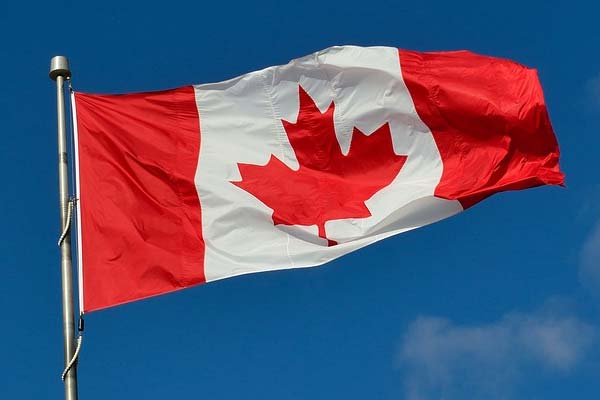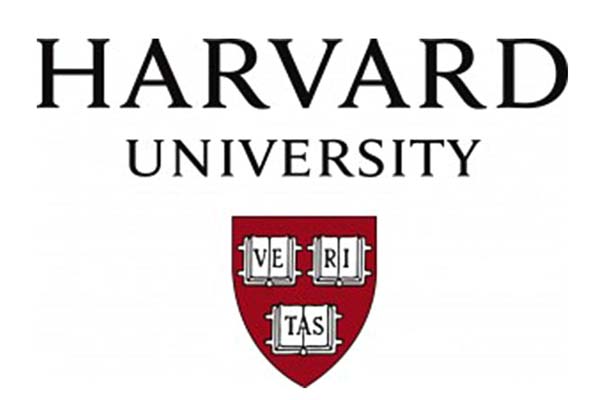Are IGCSE Students Eligible for NEET? An Overview of Eligibility Criteria
IGCSE is a globally accepted curriculum for grades 9 and 10 students provided by Cambridge International Examinations (CIE). Renowned for its high academic rigor.
However, whether IGCSE students are eligible for NEET, or the National Eligibility cum Entrance Test, has been debated among students and parents.
NEET is India’s national medical entrance exam for undergrad medical and dental courses.
The exam is based on the CBSE syllabus for Physics, Chemistry, and Biology and requires students to have a strong foundation in these subjects.
While some students and educators believe that IGCSE students are eligible for NEET, others argue that the curriculum is not aligned with the CBSE syllabus and may not adequately prepare students for the exam.
Understanding NEET
NEET is the critical exam conducted by the NTA for students aiming to pursue MBBS and BDS courses in India’s medical and dental colleges.
As the singular entrance exam for these undergraduate programs, NEET-UG is overseen by the Medical Council of India (MCI) and Dental Council of India (DCI) to ensure the rightful admission of eligible candidates.
Annually held, NEET is a one-tier exam featuring 180 multiple-choice questions from Physics, Chemistry, Biology (Botany and Zoology). This three-hour paper is conducted in pen and paper mode, with options for various languages like English, Hindi, and more.
NEET-UG allocates 15% of seats for an All India Quota, while the remaining 85% is reserved for state-level candidates.
Eligibility requires passing Class 12 with Physics, Chemistry, and Biology as core subjects. The baseline for application is 50% in these subjects, though reserved category candidates need only 40%.
Eligibility Criteria for NEET
NEET, conducted by the NTA, is India’s rigorous medical entrance test for admissions to government and private medical and dental colleges. Here are the eligibility criteria for NEET:
🌟 Hey Students! 🚀 Ready for the ultimate experience? Join us on Studentsinside.com's Facebook, YouTube, WhatsApp, and LinkedIn. Click now for tips, fun, and success vibes! 🌈✨ #StudentLife #JoinUs
Age Criteria
Candidates must be at least 17 years old as of December 31 of the year of admission for NEET. While there is no upper age limit, meeting other eligibility criteria is necessary.
Qualifying Exam
Applicants must have completed 10+2 or its equivalent with core subjects, including Physics, Chemistry, Biology/Biotechnology, and English from a recognized board. Those currently taking the qualifying exam in the same year can also apply for NEET.
Qualifying Marks
A minimum of 50% marks is required for general category candidates, 45% for general-PH, and 40% for SC/ST/OBC in the qualifying exam. Practical exam marks are also considered for NEET eligibility.
Language
The candidate can appear for NEET in 11 languages, including English, Hindi, Tamil, Telugu, Kannada, Bengali, Gujarati, Urdu, Marathi, Assamese, and Oriya. The question paper will be in the chosen language except for English.
Documents
Candidates need a valid Aadhaar card or government ID, passport-size and postcard-size photos, and a signature in the specified format.
Attempts
There is no limit on the number of attempts for NEET. Candidates can appear for NEET as often as they want until they fulfill the age and other eligibility criteria.
Overall Development
The Government of India has made it mandatory for medical colleges to consider the overall development of the candidate while granting admission. This includes the candidate’s participation in extracurricular activities, sports, and other non-academic pursuits.
AIIMS and JEE
Candidates interested in pursuing medical courses at AIIMS or JIPMER must appear for a separate entrance examination conducted by the respective institutes. However, NEET scores are also accepted for admission to these institutes.
Government of India, Indian Nationals, NRIs, and PIOs
NEET is available to Indian nationals, including NRIs, PIOs, OCI holders, and foreign residents, with varying eligibility criteria for each group.
NTA Notification
Candidates are advised to read the NTA notification carefully before applying for NEET. The notification contains detailed information about the eligibility criteria, application process, exam pattern, and other essential details related to NEET.
All India Quota Seats
15% of India’s government medical and dental college seats are allocated to All India Quota (AIQ) and filled via centralized counseling by the DGHS.
Upper Age Limit
NEET has no age limit, but certain states impose age restrictions for medical course admissions. Check your state’s eligibility criteria before applying.
Understanding IGCSE
The IGCSE curriculum is designed to provide students with a broad education covering various subjects. IGCSE students must take a minimum of five core subjects, including English Language, Mathematics, and Science.
Additionally, students can choose from various subjects, including Computer Science, Dance, and an additional language. The IGCSE curriculum promotes overall development, including textual knowledge and critical thinking.
The IGCSE qualification is offered to students who have completed their Class X qualification. The curriculum is designed to prepare students for Cambridge International A Levels, equivalent to Class XI and XII qualifications in India.
Global universities accept IGCSE qualifications. In India, the AIU equates Cambridge International A Levels to a 10+2 qualification from Indian exam boards like HSC.
Tutors and teachers familiar with the IGCSE curriculum can help students prepare for NEET. While NEET is based on the NCERT syllabus, IGCSE students can still appear for the exam and crack it with extra effort.
IGCSE Students and NEET
IGCSE is a globally accepted qualification for secondary school graduates. NEET is a nationwide exam for those aspiring to study undergraduate medicine in India.
There is a common question among IGCSE students about whether or not they are eligible to appear for the NEET exam. The answer is yes; IGCSE students are eligible to appear for NEET. However, there are specific criteria that they need to fulfill to be eligible.
To be eligible for NEET, candidates must have completed their 12th grade with compulsory subjects: Physics, Chemistry, and Biology. IGCSE students who have finished their +2 stage with these subjects can also take the NEET exam.
It is important to note that IGCSE is not equivalent to the CBSE or any other Indian board. However, the Association of Indian Universities (AIU) recognizes IGCSE as equivalent to the 10+2 stage qualification of an Indian board.
Therefore, IGCSE students who wish to apply for undergraduate courses in Indian universities must obtain an equivalence certificate from the AIU.
Foreign nationals who have completed their higher secondary education courses from foreign boards can also appear for NEET.
However, they must obtain an eligibility certificate from the Medical Council of India (MCI) before applying for NEET.
International Boards and Indian Universities
Indian universities recognize international boards like GCSE, IB, and A Levels. The Association of Indian Universities (AIU) grants equivalence to foreign degrees, including Cambridge International A Levels, Cambridge IGCSE, and Cambridge O Levels.
Equivalence certificates from AIU confirm that Cambridge International A Level qualifications are equivalent to 10+2 qualifications from any Indian exam board.
Foreign nationals who have completed higher secondary education courses from international boards like GCSE, IB, and A Levels can apply for undergraduate courses in Indian universities. However, they need to obtain an equivalence certificate from AIU to confirm the equivalence of their qualifications.
Indian universities have different eligibility criteria for undergraduate admissions. Students must clear JEE Main and Advanced exams for admission to engineering courses in IITs.
Students who have completed their higher secondary education courses from state education boards, CISCE, or NIOS are eligible for JEE Main and Advanced exams.
International boards like GCSE, IB, and A Levels have different grading systems. Indian universities consider the equivalence of grades while granting admission to foreign nationals. The AIU has developed a formula to calculate the equivalence of grades obtained in international and Indian board exams.
Indian Boards and NEET
NEET, a national-level entrance exam by NTA, is for admission to India’s undergraduate medical courses. Candidates need Class 12 with Physics, Chemistry, and Biology. The 50% minimum marks requirement applies to all Indian boards: CBSE, ICSE, state boards, CISCE, and NIOS.
The CBSE board is one of the most popular boards in India, and many NEET aspirants come from this board. NEET also recognizes the CISCE board; candidates who have completed their Class 12 from this board are eligible for NEET.
NEET also recognizes state education boards and candidates who have completed their Class 12 from state boards are eligible for NEET, provided they meet the eligibility criteria. NEET also recognizes the NIOS board, and candidates who have completed their Class 12 from this board are eligible for NEET.
NEET eligibility demands completion of Class 12 or equivalent with mandatory Physics, Chemistry, and Biology, and a minimum 50% mark in these subjects. Both Indian and foreign nationals qualify if criteria are met.
IGCSE and Other International Qualifications
International qualifications such as IGCSE, IB, AP, and foreign degrees are recognized by universities in the UK and other countries worldwide.
These qualifications are designed to provide students with a well-rounded education focusing on overall development rather than just textual knowledge. They aim to develop critical thinking skills and prepare students for higher education.
The IGCSE curriculum includes core subjects such as languages, mathematics, and science, as well as additional subjects such as computer science and dance. The curriculum is designed to provide students with broad knowledge and skills that will prepare them for further study.
IGCSE is recognized as a Class X qualification and is one of the prerequisites for admission to undergraduate courses in India. It is also recognized by CBSE, CISCE, and state education boards in India as a qualification for entry to Class XI or for other higher secondary education courses.
Cambridge International A Levels and International Baccalaureate Diploma are other international qualifications recognized by universities in the UK and worldwide. These qualifications are designed to give students a rigorous and challenging education to prepare them for higher education.
Class XI is an essential year for students planning to pursue higher education. Students must choose the correct course list for the XII equivalent that will make them eligible for NEET/JEE. Tutors can help students identify the course list best suited for them.
NEET and Other Indian Exams
NEET is India’s exam for admission to medical and dental undergraduate programs in both public and private institutions. Administered by the NTA, it is universally recognized by all Indian medical colleges.
Apart from NEET, there are other Indian exams that students can take to pursue medical courses in India. These exams include AIIMS (All India Institute of Medical Sciences) and JEE (Joint Entrance Examination) Main and Advanced.
AIIMS is a medical college and research institute in India that offers undergraduate and postgraduate medical courses. JEE Main and Advanced are entrance exams for engineering colleges in India but also provide admission to specific medical colleges.
The Government of India has set specific eligibility criteria for students who wish to appear for NEET and other Indian exams. Indian nationals, NRIs (Non-Resident Indians), and PIOs (Persons of Indian Origin) are eligible to appear for NEET.
Students can attempt the NEET exam a maximum of three times. To be eligible for NEET, students need to have completed 10+2 or an equivalent level of education with Physics, Chemistry, Biology/Biotechnology, and English as their core subjects.
NEET offers two types of seats: open and All India quota. Open seats are for students who completed 10+2 or equivalent from any Indian state.
All India quota seats are for those who finished 10+2 or equivalent from any state and want to pursue medical studies in government medical colleges in India.
The MCI has set rules for medical students in India. To join medical courses, students need 50% in Physics, Chemistry, and Biology/Biotechnology in their 10+2 exams. Reserved category students require 40% in these subjects.
NEET for OCI, NRI, and Foreign Nationals
NEET serves as the exclusive entry exam mandated by the Indian government for aspiring medical students aiming to secure admission into top medical institutions across the country.
This test is open to Indian Nationals, Non-Resident Indians (NRIs), Overseas Citizens of India (OCI), Persons with Indian Origin (PIO), and Foreign Nationals, all of whom can seek admission to Medical/Dental/Ayurveda/Siddha/Unani/Homeopathy Colleges.
The specific admission criteria are determined by the relevant State Governments, Institutions, and Universities.
Revised guidelines affirm the eligibility of Indian nationals, NRIs, OCI, PIO, and foreign nationals for admission to medical, dental, ayurveda, Siddha, Unani, and homeopathy colleges.
However, OCI candidates face certain limitations as they are categorized as foreign nationals, rendering them ineligible for seats reserved for Indian nationals, including paid seats in deemed universities.
The MCI has set up a 15% All India Quota (AIQ) for undergraduate courses in medical colleges. The remaining 85% of seats are reserved for state-level admissions. OCI candidates can only apply for the 15% AIQ seats reserved for NRIs and foreign nationals.
Individuals from foreign countries who intend to apply for the NEET exam should have finished their 10+2 education or its equivalent, including Physics, Chemistry, Biology/Biotechnology, and English as core subjects. Furthermore, a prerequisite entails achieving a minimum aggregate score of 50% in the PCB subjects.
The admission process for foreign nationals and NRIs differs from that of Indian nationals. They must apply through the respective Indian missions abroad. The application process for OCI candidates is the same as that for Indian citizens.








